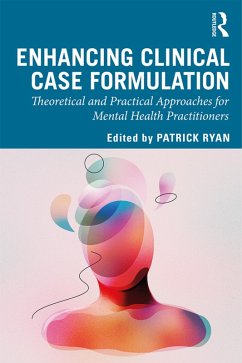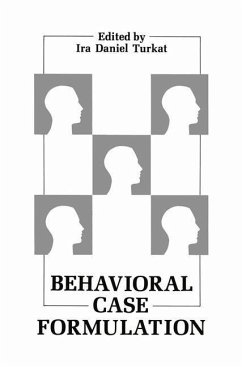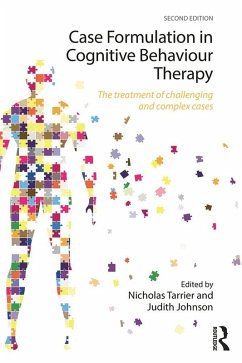
Evolutionary Case Formulation (eBook, PDF)
Developing a Unified Language for the Practice of Psychotherapy
Versandkostenfrei!
Sofort per Download lieferbar
88,95 €
inkl. MwSt.
Weitere Ausgaben:

PAYBACK Punkte
44 °P sammeln!
This book presents the Evolutionary Case Formulation model, a new proposal of case formulation protocol developed with the aim of providing psychotherapists with a common language to identify and treat psychological problems of varying complexity. This new case formulation model was developed based on the analysis of textual data in complete psychotherapeutic processes which led to the identification of different dimensions of intersubjective meaning elaboration that are a product of our evolution as a species.The Evolutionary Case Formulation model is based on a system of first and second ord...
This book presents the Evolutionary Case Formulation model, a new proposal of case formulation protocol developed with the aim of providing psychotherapists with a common language to identify and treat psychological problems of varying complexity. This new case formulation model was developed based on the analysis of textual data in complete psychotherapeutic processes which led to the identification of different dimensions of intersubjective meaning elaboration that are a product of our evolution as a species.
The Evolutionary Case Formulation model is based on a system of first and second order intersubjective knowledge domains. The first order knowledge domain is the Self System, which is ubiquitous in the processing of information and creation of individual meaning in a cultural intersubjective matrix. The second order knowledge domains are the different dimensions of intersubjective meaning elaboration: Cognition, Emotion, Interpersonal, Imagination, Corporeality, Sexuality and Religiosity/Spirituality. This system provides psychotherapists with a new conceptual framework to work with patients in the different stages of the psychotherapeutic process, from assessment to treatment planning and implementation.
The book Evolutionary Case Formulation: Developing a Unified Language for the Practice of Psychotherapy, that the reader has in their hands, was first published in Spanish in 2021. This English edition is a fully revised and updated version of the original Spanish edition. More specifically, the case formulation protocol presents a series of innovations that are not present in the Spanish edition. In other words, it is a protocol that includes numerous clarifications in the intersubjective knowledge domains, making this book different.
The original manuscript of this book was written in Spanish and translated into English with the help of artificial intelligence. The author (with the friendly support of a bilingual psychotherapist) has subsequently revised the text further in an endeavor to refine the work stylistically.
The Evolutionary Case Formulation model is based on a system of first and second order intersubjective knowledge domains. The first order knowledge domain is the Self System, which is ubiquitous in the processing of information and creation of individual meaning in a cultural intersubjective matrix. The second order knowledge domains are the different dimensions of intersubjective meaning elaboration: Cognition, Emotion, Interpersonal, Imagination, Corporeality, Sexuality and Religiosity/Spirituality. This system provides psychotherapists with a new conceptual framework to work with patients in the different stages of the psychotherapeutic process, from assessment to treatment planning and implementation.
The book Evolutionary Case Formulation: Developing a Unified Language for the Practice of Psychotherapy, that the reader has in their hands, was first published in Spanish in 2021. This English edition is a fully revised and updated version of the original Spanish edition. More specifically, the case formulation protocol presents a series of innovations that are not present in the Spanish edition. In other words, it is a protocol that includes numerous clarifications in the intersubjective knowledge domains, making this book different.
The original manuscript of this book was written in Spanish and translated into English with the help of artificial intelligence. The author (with the friendly support of a bilingual psychotherapist) has subsequently revised the text further in an endeavor to refine the work stylistically.
Dieser Download kann aus rechtlichen Gründen nur mit Rechnungsadresse in A, B, BG, CY, CZ, D, DK, EW, E, FIN, F, GR, HR, H, IRL, I, LT, L, LR, M, NL, PL, P, R, S, SLO, SK ausgeliefert werden.












